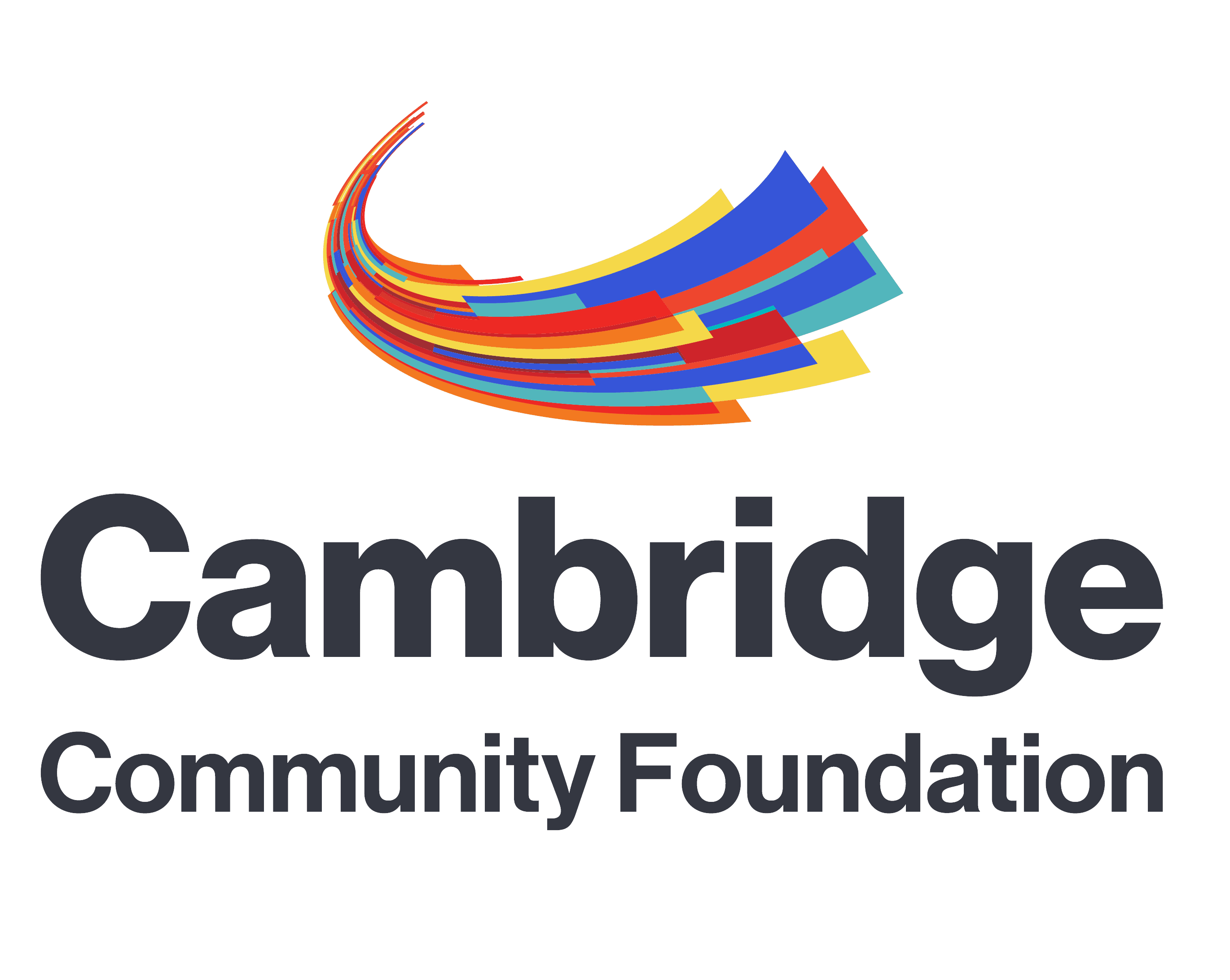The collection of essays below, from our 2022 annual report, elevates some of Cambridge’s solution seekers and the values that guide them, values the Foundation shares. Their stories remind us that place matters, and people matter. It’s the people in this city who can think beyond problems to possibilities, build opportunity from hope, create transformation through purpose. Photography by Margaret Lampert.

Mobility is freedom
I’d always see abandoned bikes around town, and one day I just thought, why not give them back to the community? On Facebook I asked people for their old bikes, and we got 11. We fixed them up and we’d take them to the projects where I grew up, or we’d see people walking to work and give them a bike, and they would be so happy. I wanted to connect with the community, I wanted to recycle, and I wanted to counteract the belief a lot of people have that Black men are thugs. We started this around the time of the George Floyd protests, and I wanted to show—where I grew up, in my community—that we are not what the media and the police were portraying. It feels great to give away a bike, especially to someone who needs it. I just feel like it’s something I’m supposed to do.
—Lonnell Wells
In 2020, Lonnell co-founded Cambridge Bike Give Back with 11 bikes. The organization has now given away 1,800 and, says Lonnell, “100 percent we plan to go national.” He is a winner of CCF’s 2021 Imagined in Cambridge! Social Innovation Award.
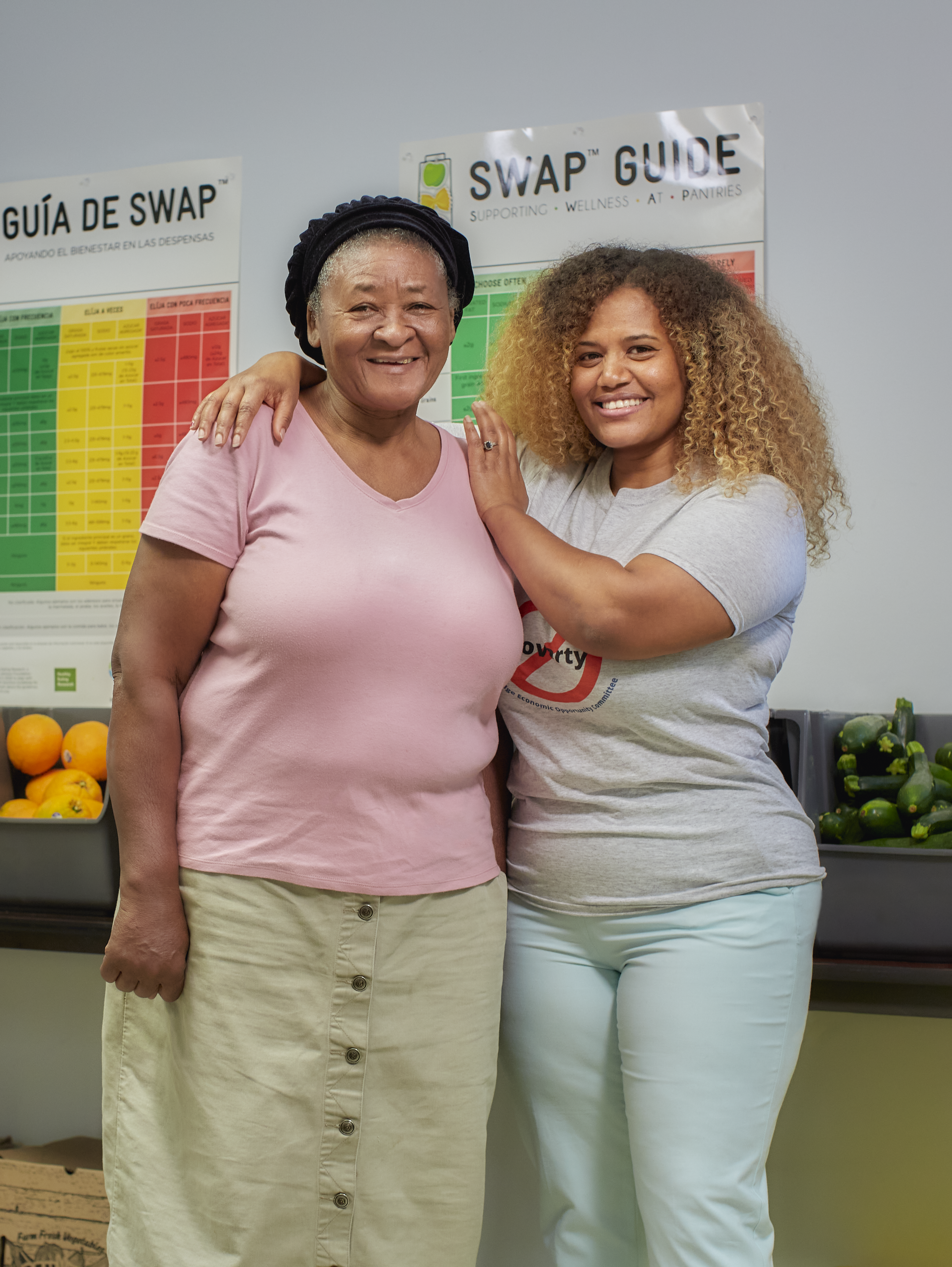
Our door is open to everyone
As a teenager I won the visa lottery and moved to Cambridge from Ethiopia, where they don’t treat girls as well as boys. I think everybody should be treated the same way, but it wasn’t like that for me and the people I saw around me. I had a hard time in Ethiopia and also here, for several years, until I got my job at CEOC. I do many things there—everything the agency offers. I’m a people person. I love people without judging their gender, religion, or differences. Our door is open to everyone; we don’t judge. CEOC is my bridge to reach out to my community and say, “This is what we can help you with.” For so many people, what we do is life-changing. My job makes me feel so good, I would do it for free. It’s everything.
—Yemi Kibret
Yemi is a community educator and advocate at the Cambridge Economic Opportunity Committee, which helps Cambridge residents navigate the complicated web of federal and local social service programs available. She is pictured here with Jesula Francois, a visitor to CEOC’s grocery store-style North Cambridge Food Pantry, which gives visitors the opportunity to select the food their family will eat. CEOC is a long-time CCF nonprofit partner.
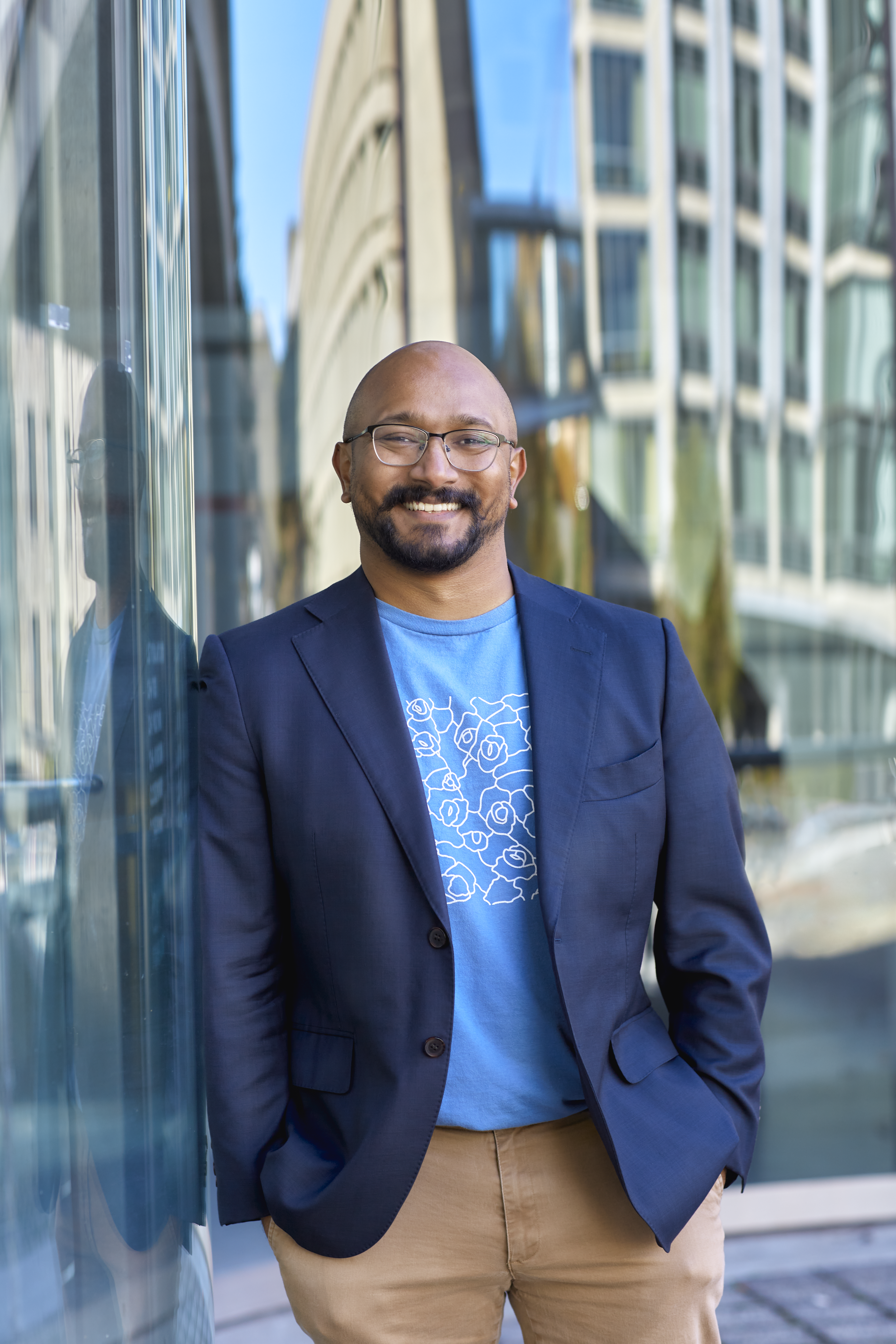
Collaboration is key
Equity, opportunity, and fairness create opportunities for people, but what’s most important is collaboration. In every facet of my life, professionally and personally, it helps me remove biases, meet people where they are, and help them succeed. Every person has self-worth and deserves respect. Everyone has their own story that has value. Cambridge is special because it’s a melting pot. So many different people and viewpoints all in one place make society better. Diversity helps everyone, individually and as a whole. The question is how can we do it better? There isn’t just one solution to our problems, everything’s a collective effort. Respecting people’s thoughts, opinions, and processes helps remove barriers. The day-in, day-out work is collaborative. I genuinely think that’s how we do better in the world.
—Rohan Kundargi
Rohan is a K-12 community outreach administrator at MIT.
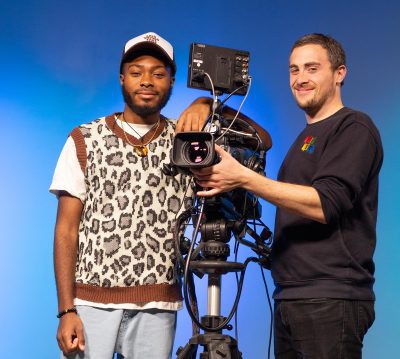
Opening doors to opportunity
I love learning about people who are so deeply rooted in our community, bringing the community together. But it’s quiet work. We don’t hear much about the projects that are near and dear to people’s hearts; great organizations doing great things, trying to spread their relevance, reaching people that their work will mean something for them. Instead, we are watching Cambridge change all around us. CCTV opened the door of opportunity for me to put a lens on the quiet work. It’s a gateway to gain connections and pursue ways to share others’ creativity, social innovation, and the healing voices and stories of Cambridge. I’m looking out for those who give back to the community. Without them, there won’t be a community to do it for.
—Heinz Thomas-Vital
Heinz was the first young Cantabrigian to hold a paid internship with Cambridge Community Television (CCTV) thanks to a grant from the Zandy Bard Fund at the Cambridge Community Foundation where he’s creating a video series about Imagined in Cambridge! social innovators.
Empowerment through creativity
Heinz is a great example of someone who is beginning to realize what he’s capable of professionally, and his creativity can be an inspiration for others in the community. It’s exciting to live in a community that encourages and values creativity. Granting people a platform for self-expression empowers them. It helps them understand themselves and show who they are to the community, and that’s a potent force. We live in a time where it’s sometimes tough to be hopeful and optimistic and excited, but creativity opens up that feeling of joy that can get you out of dark places. That’s what CCTV is all about, helping someone who has lived in the city all his life develop job skills while raising up the community.
—Peter Levine
Peter is an educator and the executive producer of the Make Media Workshop at CCTV. He founded Somerville’s Weird Local Film Festival in 2017.
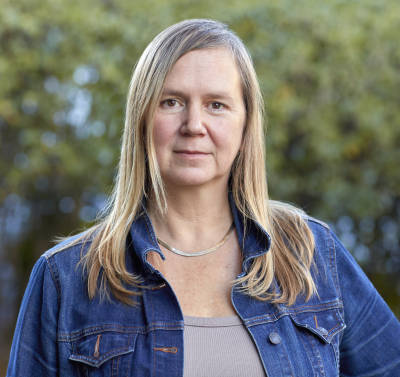
Picturing inclusion
As a city we talk a lot about equity and inclusion, and we think we know what we’re talking about, but we don’t always know. Cambridge has a lot of visible diversity, but inclusion is different. It means people have to feel valued. It’s trickier than just inviting people to the table—you have to create a space and an energy for them to feel at home and themselves. That’s much harder to do in a city with such varied economic backgrounds and life stories. Both as a photographer and as a family liaison, I try to think about how to create spaces where people feel welcome and valued, where their voices are heard. When I’m holding my camera, I’m looking for moments of truth; looking for someone’s essence. I try to elevate my community through portraiture.
—Kristen Joy Emack
Kristen Joy Emack is a 2022 Guggenheim Fellow, MacDowell Fellow, a Massachusetts Cultural Council Photography Fellow, and a Boston Saint Botolph Grant awardee. Her work has recently been on view in Finland, Atlanta, and Miami. She has won numerous awards locally and is known internationally for her documentary photography project, Cousins. Kristen is a Cambridge resident and family liaison at the Cambridgeport School.
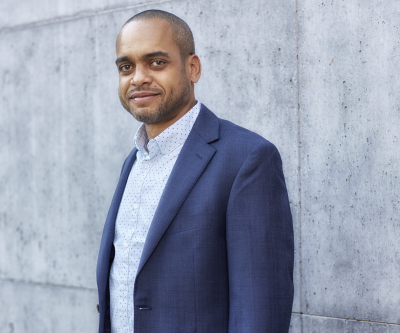
Creating space for success
I never imagined I could go to college, and now it’s my turn to show kids they can be what they want to be. I was blessed to end up at Howard University, and that’s where I saw how important it is to help students find a space where they’re more likely to succeed. A lot of kids from Cambridge have good skills and tools, but they pick schools that don’t fit them. It’s important for us as adults to show them there are spaces where they can be accepted, so they don’t walk away with a few credits and a lot of debt. It’s really about helping students identify their place in the world and find their calling, find the thing that drives them. I want these kids to make a difference in the world.
—Kyrk Morris
Kyrk founded Citizens of the World, a nonprofit that provides education and social services to youth and families, and the Historically Black College and University Tour, which opens pathways to college through awareness of higher educational opportunities. He is a winner of CCF’s 2022 Imagined in Cambridge! Social Innovation Award.
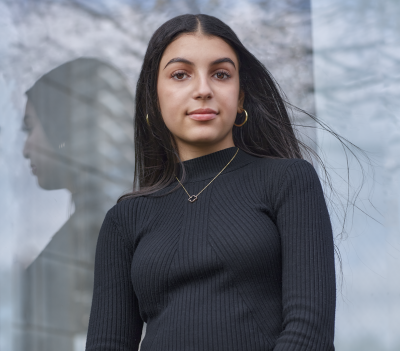
Commit to community
As a teenager and someone who has grown up in this city, I’ve seen how amazing Cambridge can be as it continues to adapt and evolve. But we don’t always get the best of living here, even with great institutions in our backyard. We need to find the best ways to help build up Cambridge in an equitable, inclusive way, and have conversations that raise awareness and push for change. We need to make sure everyone in the community has a voice and a sense of belonging and representation. We talk about youth being our future, but they’re also our now. We all have something to bring to the table. At the end of the day, we’re all human. What can we do to make sure the problems are no longer systemic? How can we address the root cause? And how can you, in your role in the community, help with that change?
—Jennat Jounaidi
Jennat, a junior at CRLS, is the co-founder of the “Voices of 2 Blocks” podcast, which explores the connections between the innovation sector and the community. She serves on the Cambridge Youth Council and is a member of Innovators for Purpose, a CCF nonprofit partner that aims to build an inclusive, future-ready workforce.
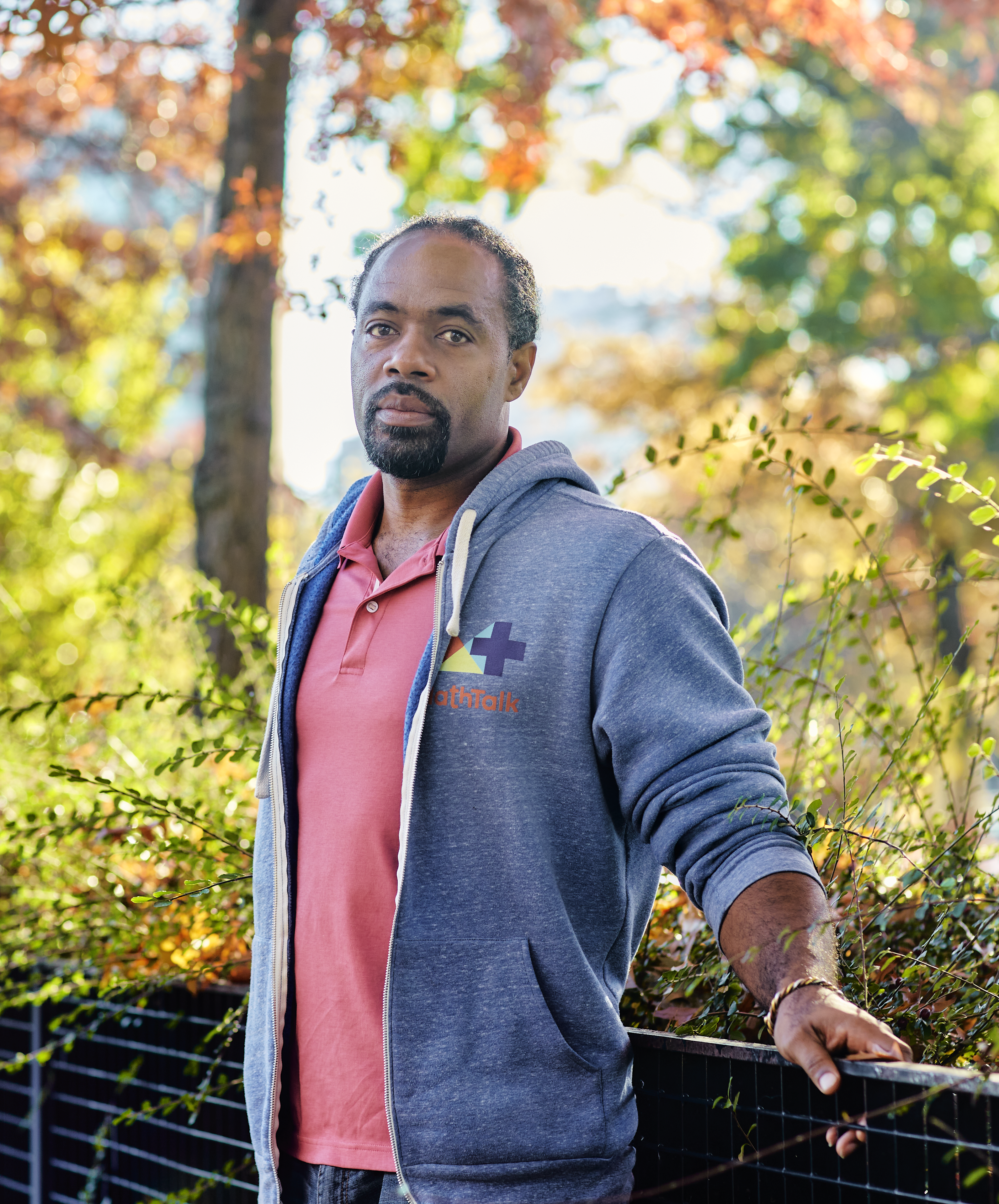
Equity starts with self-determination
Education is an opportunity to break through. It’s a mechanism to change society. Every person’s life has value and we need to create a society that recognizes that, and isn’t built on exploiting and devaluing some people. We help to do that through math, which so many people have anxiety around, but which can be galvanizing and represent an opportunity for folks to have a shared experience that’s positive. It can help kids develop the tools to move through the educational system and participate in the economy in a different way. A lot of Black males say, “Education!” But education for what? Do I just want to go through the system and acquire things in life, or do I want to be affirming and challenge how the system operates and the opportunities it presents for kids from these communities? Early on, particularly for male students, the school system is not nurturing them so they can thrive. For boys it can feel like a toxic space. But we want all kids to be self-determined and find a path that’s meaningful for them, to do work that’s purposeful and valuable, to contribute to the world we live in, and recognize one another’s humanity and build relationships that allow them to stand together to change things.
—Omo Moses
Omo is the CEO and founder of MathTalk, which brings together parents, teachers, researchers, and others to make learning math fun through stories, public art, and augmented reality experiences. He is co-founder of CCF’s Bob Moses Fund for Education & Organizing.
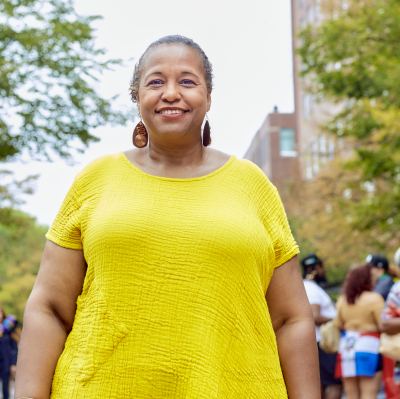
Celebrating joy
All cultures, all voices in Cambridge are valued and important. Being able to express who you are is essential and it’s what Cambridge Carnival International offers. This culturally historic event rooted in African traditions from the Caribbean happens all over the world, and it gives people the space to be free and to express themselves in the streets, in the main arteries of our cities through music, dance, costume, food, and community. To me that’s the epitome of human dignity—to express yourself freely. It brings the promise that whoever you are, however you are, whatever you are, you’re welcome. And it brings all this joy. The diversity, the smiles on people’s faces—they make all the work we do all year so worth it.
—Nicola Williams
Nicola is a marketing consultant and event organizer who has turned her talents in that arena to making Cambridge’s Carnival—which has run for almost three decades—the huge success it always is.
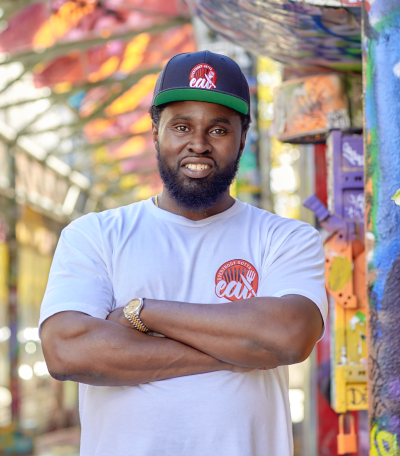
Mentoring is food for the soul
Our youth need to see positive role models. I had role models like Bob Moses, the civil rights leader who grew up in my neighborhood; Henry Louis Gates, who lives in Cambridge; my mother, who was like a modern-day Harriet Tubman, and did what she could to help people in Haiti. A lot of people here in Cambridge stand for something and want everyone to win. That’s the kind of impact I want to have in the world. When you reach the end of your life, you want a good answer to the question, Who did I motivate? Dignity, respect, honor, giving back, and trying to help people—those are the values I try to promote. When I hear young people say, I’m an inspiration at a neighborhood cookout, I’m reminded that people are watching. I just show love and hope it catches on.
—Emmanuel Mervil
In 2017, Emmanuel created Everybody Gotta Eat, which provides catering, hosts large-scale cookouts and food festivals, and provides free meals to community members. He is a winner of CCF’s 2022 Imagined in Cambridge! Social Innovation Award.
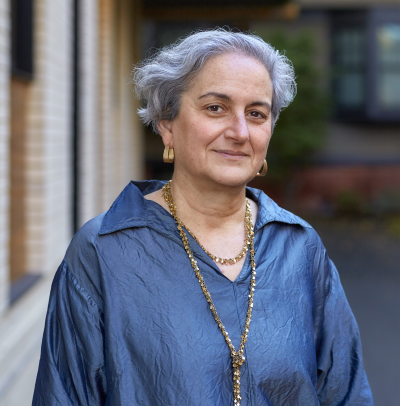
Fairness and beauty belong together
I’m driven by fairness and beauty. It’s a personal value of mine to treat people fairly and make sure that the things everyone gets to use are beautiful. I don’t mean aesthetically pleasing, necessarily, but that people are respected, and things are functional. Beauty is in the eye of the beholder. Why should people with less means have to deal with things that aren’t functional or beautiful?
Four- to five-thousand people search the Housing Navigator each week, and from the beginning Cambridge has been one of the most-searched areas. It’s been a privilege to work on something innovative and different and to build something so many people use every day. It’s hard for families to find housing that’s affordable for them, but we help people see the options they might have. It feels like this is the best thing I could possibly be doing given the challenges people face in this market. We all have the capacity to be change-makers, innovators, creators, and advocates.—Jennifer Gilbert
Jennifer is the founder and executive director of Housing Navigator Massachusetts, a free, searchable database of income-restricted rentals across the state that launched in 2021.
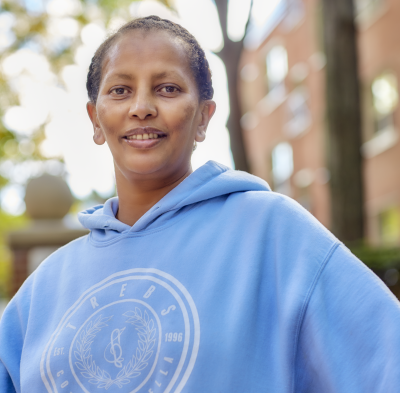
The ABCs of resilience
I came to this country 10 years ago as an asylum seeker from Ethiopia. I came from nothing and started from scratch here. I don’t want my son, Nicodemus, to experience that. I want him to have a good education. I’m studying Biotechnology at Bunker Hill Community College. As a single mother, it’s not always easy. My son’s needs come first, then my classes, then work. It’s all a balancing act, and things can fall apart so easily. Last semester, my school refused my financial aid and said they’d have to drop me from my classes if I didn’t pay. I paid [tuition] with my Cambridge RISE money and stayed in school and have finished two semesters. It’s a dream come true for me and a path I want for my son, one that will help him find his gifts to give to his community.
—Seble Tefera
Seble and her six-year-old son, Nicodemus, took part in Cambridge RISE (Recurring Income for Success and Empowerment), an 18-month pilot program that offered single caregivers $500 a month in guaranteed basic income payments thanks to a partnership with Mayor Siddiqui and generous Cambridge donors.
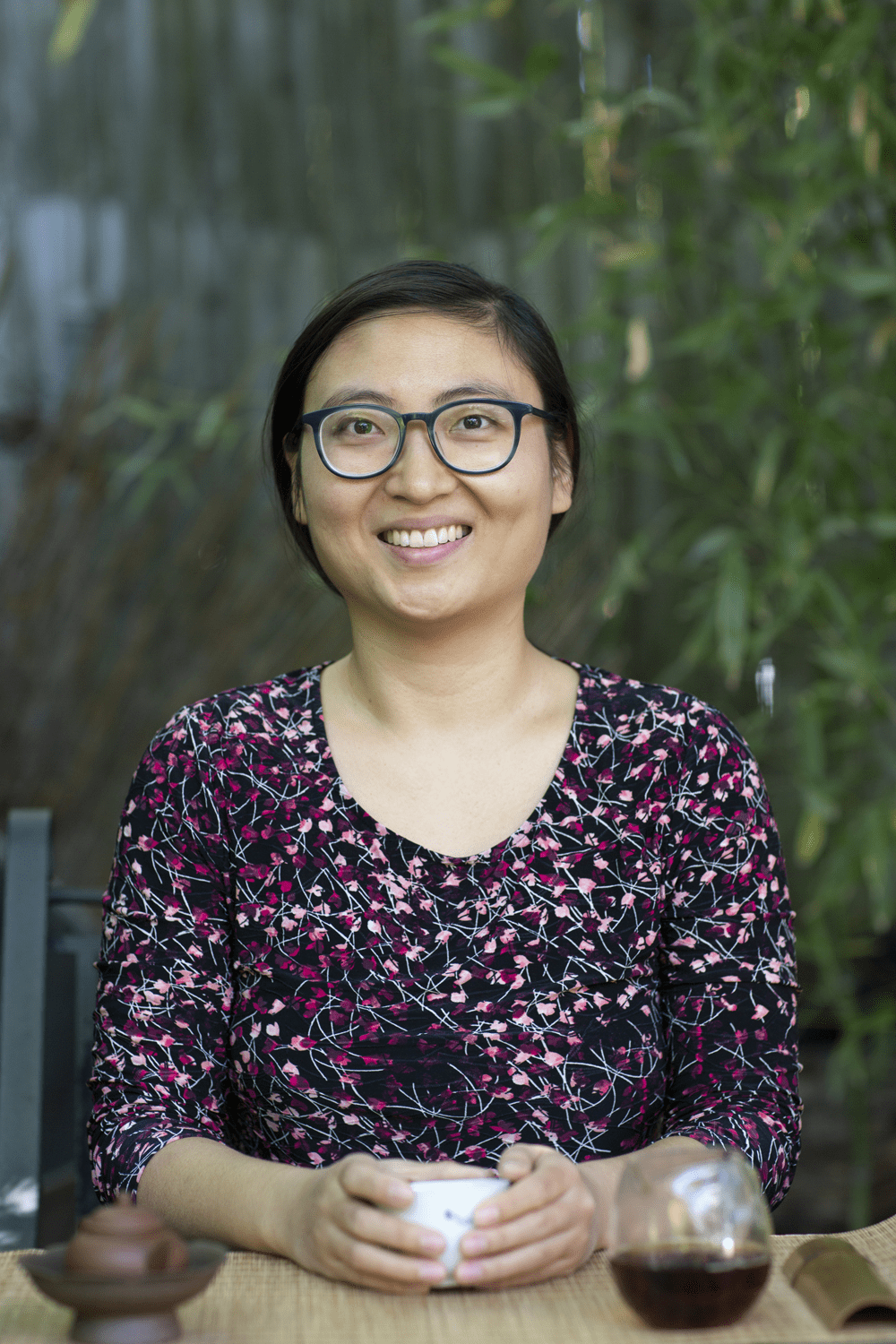
Community in a cup
When I have guests over for tea, we’re all equal. We all sit at the same height and drink out of the same size cups. I pour the tea into a fairness pitcher before serving it because if you pour directly from the teapot, the first cup is weak and the last is strong. But we’re all the same—no one is better or worse. We have so many different stories, so many different paths; how can we create a movement of social justice together, across generations and classes, if we can’t see the wisdom and value in others? It’s important to cultivate intra-racial understanding and generate authentic relationships; otherwise, solidarity and unity are hollow. We all have shortcomings, and we all have a lot to give. We can make real, meaningful connections when we build bridges and come together as equals.
—Yin Guan
Yin’s project, CommuniTEA, unites elderly Asian immigrants and young Asian-Americans at tea gatherings that, she says,“bring people together to experience beauty in a cup.” She is a 2022 Imagined in Cambridge! Social Innovation Award winner.
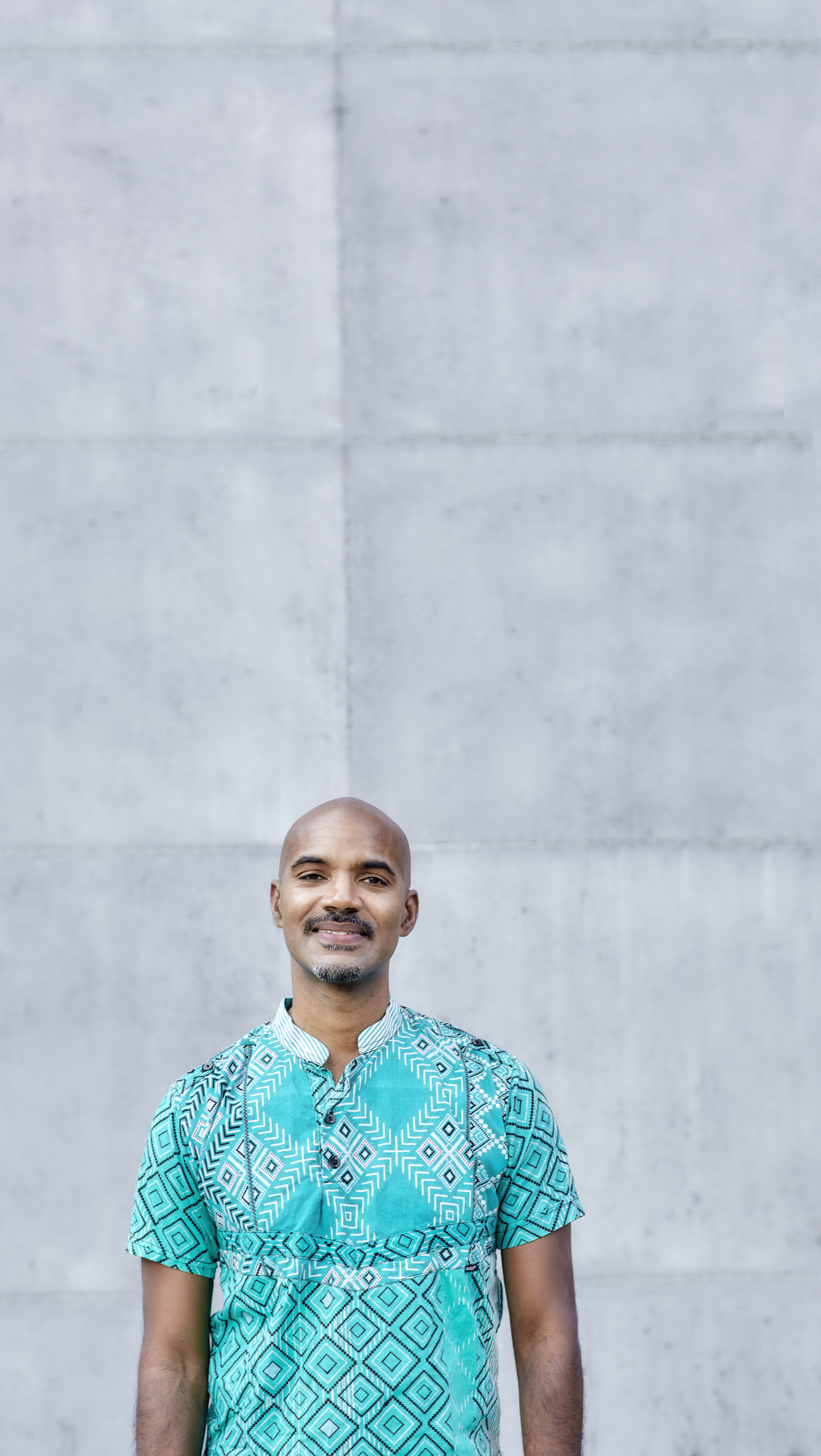
Dignity is a place
Dignity is a place. Wealth is a place. Justice is a place. And liberation is a place. We are working on community-based reparation and healing, rebuilding connections, and creating channels of reinvestment across all dimensions of the Black experience. Through preserving St. Augustine’s Church, an 1886 building that historically meant a lot to Cambridgeport’s Black community –especially those of Caribbean descent — we are creating a physical space where the community can thrive together through collective ownership; where people can feel protected and liberated; where they can find intergenerational programs, grassroots organizing, and mentoring opportunities; and where social cohesion is reinvigorated for future generations. That is what grassroots reparations look like. We are creating the Space for Black Exuberance to help change the narrative about our future as Black people in Cambridge.
—Kris Manjapra
Kris is executive director of Black History in Action for Cambridgeport, a CCF nonprofit partner. He won a 2022 Imagined in Cambridge! Social Innovation Award for Space for Black Exuberance, a new program at St. Augustine’s Church.
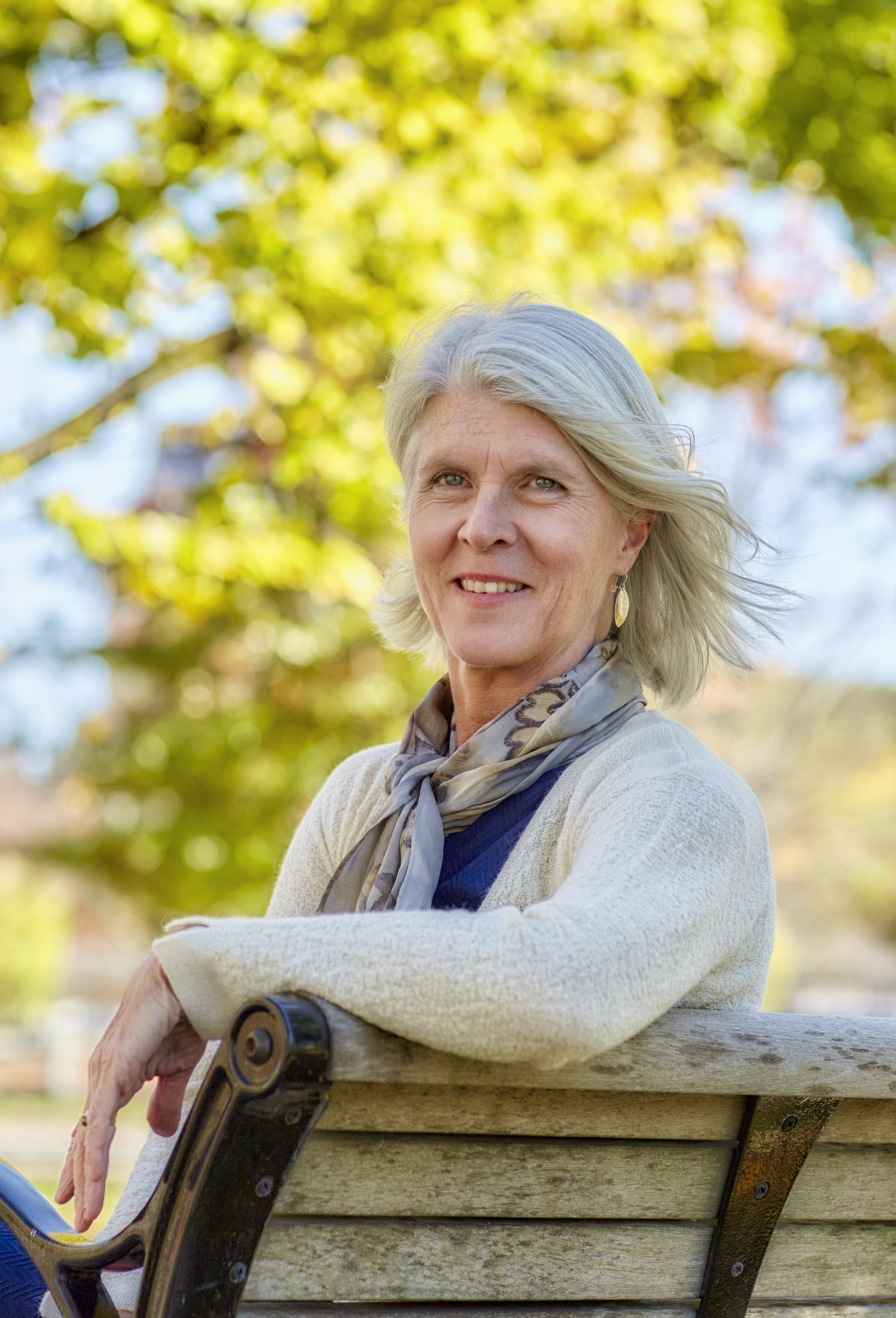
R-E-S-P-E-C-T
With the income disparities so obvious in a diverse city like Cambridge, one cannot help but feel the differences. I know what I have is a direct result of the community I’m part of. To me, human dignity means honoring and respecting that community. As an immigration attorney, I saw immigrants treated differently based on their circumstances. One person shouldn’t get a green card because they’re working for a large corporation, when another immigrant from the same country cannot, simply because they’re working for a small mom-and-pop shop. We need to value all our workers. Everyone has a right to access justice, and one sees an injustice and can remedy it, one should. For me, starting a nonprofit was the natural next step to remain connected and relevant to the community that has given me so much. We are aiming for life to be better for everybody.
—Leslie Ditrani
Leslie started Pathway for Immigrant Workers, which provides free legal services to small businesses so they can sponsor their minimum-wage workers for green cards. It is supported by a fund at CCF.
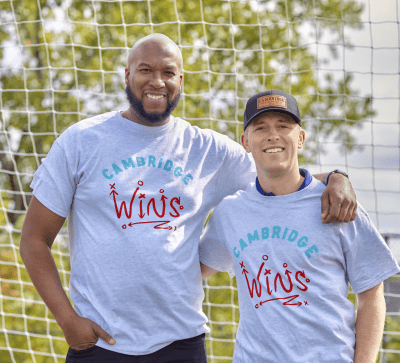
An equal playing field
I was fortunate to grow up in Cambridge, where, through sports, I met people from all different walks of life. That’s one of the beautiful things about Cambridge, and why I wanted to do something to give back to my community — to support our young people, keep them active, bring them together. I think of all the coaches, volunteers, and mentors who had a major impact on me. You don’t know what’s going to inspire a young person to do great things later in life. Not everyone will work in sports, but the values they learn through that team effort — compassion and open-mindedness and acceptance of others — will stay with them no matter where they end up. When I think about equity I think about how we can put our young people in the best situation possible to have a great shot at life. Every kid deserves that.
—Joe Bradlee
Joe is vice president of baseball operations and community relations for the Worcester Red Sox. This summer he and mentoring expert Matt Meyersohn partnered with CCF to create Cambridge WINS, which helps make sports accessible to all youth through grants.
Sports are a vessel for bringing people together, for building community. You have to trust and rely on the people on your team and lean on each other in good times and bad. These nurturing experiences should be accessible to every kid, regardless of how much money they have. I want to make sure everyone can play, even if they can’t pay. I take a lot of pride in being able to connect people with one another and with the resources they need to be successful, in watching people come together and laugh, and in seeing my community grow in a positive way. I know that kids who play on teams together will be friends forever, and when people come together and build these kinds of bonds, it adds value to the community, the city, my brothers and sisters, and our youth.
—Kenny Cooper
Kenny runs several sports leagues in Cambridge, including Pink Sunday League flag football and Pop Warner tackle football. He’s a volunteer basketball and baseball coach to elementary and middle school children who last summer received a Cambridge WINS grant.
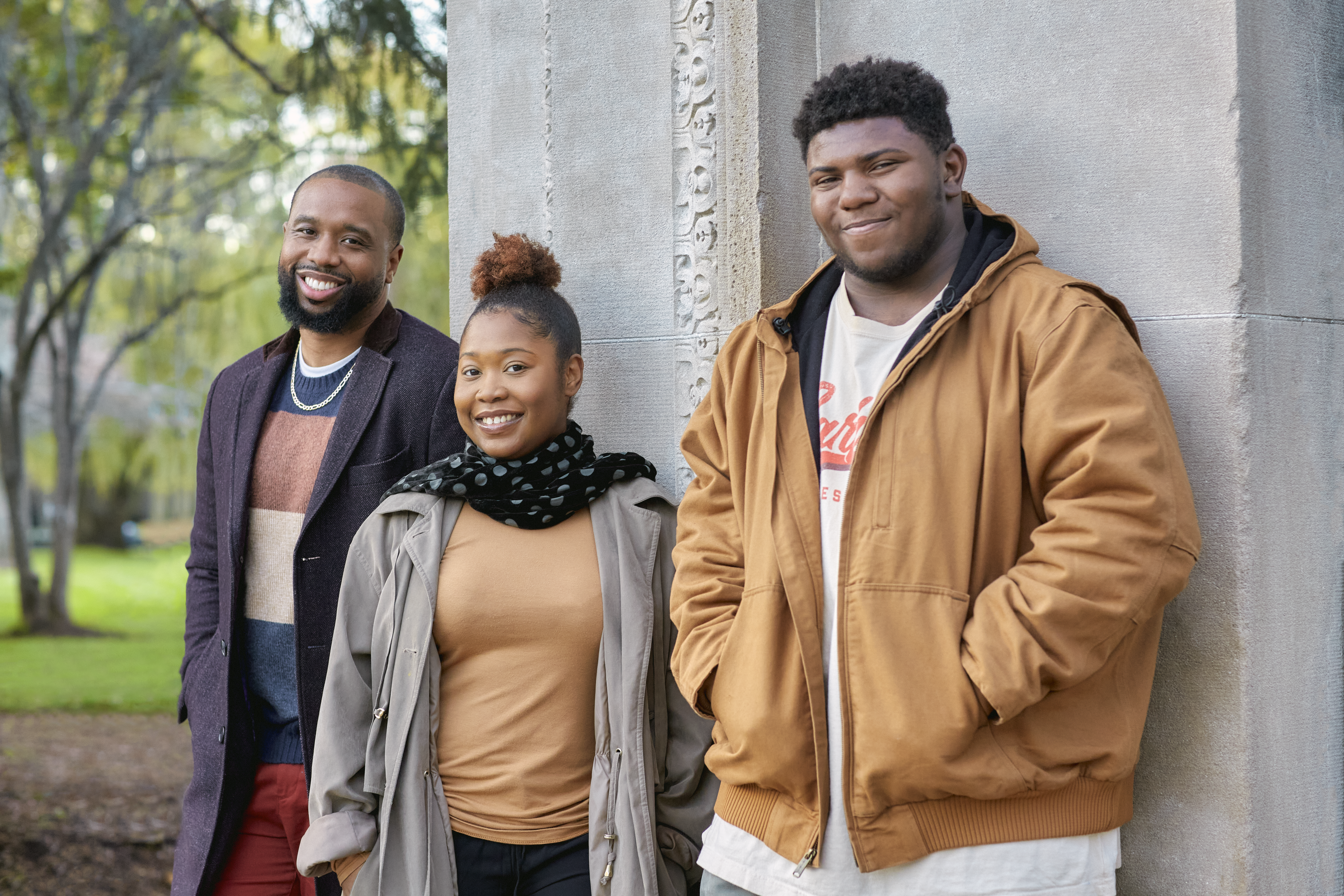
Mentoring matters: A continuum of connections
I was raised to understand that if you can help someone you should. If you have the capacity to make change, you should. It’s important to seek out relationships with others that allow us to make change together. Helping kids like Elijah and Capryce is about doing what you believe is right, for the right reasons. Anyone in a position of power, I want to see them do this. That’s where equity comes in. I would like to believe that everyone has someone they can look up to in their life because I know what a big difference it can make to them. I know that isn’t true for everyone, and that’s sad, but if each of us does our part, maybe someday, we’ll get there.
—Dr. Kwame Dance
Kwame is the founder of the Mental Health ACCESS (Advancement of Culturally Competent Education to Stop Stigma), a paid mental health career exposure and psychoeducation internship program for young people of color. He is a 2022 Imagined in Cambridge! Social Innovation Award winner.
My friends and I struggled so much in high school. We didn’t speak about mental health. I knew we had anxiety, but I had no terminology to express it without feeling like an outcast. I met Kwame a decade ago at the Morse Youth Center. We had similar interests in psychology, and he exposed me to the mental health profession and my own leadership skills. Now I get to work with kids like Elijah, who is motivated to apply his vision to problem solving and will go well past where he thinks he’s going to go. Mentors like Kwame are powerful; they bring you back to self. I think dignity is remembering who you are and when you forget, surrounding yourself with the people who will remind you.
—Capryce Browne
Capryce worked with ACCESS throughout college and is now its program director. She graduated from UMass Amherst in 2021 with a degree in psychology.
Growing up in Cambridge I was surrounded by people who were innovating, and I wanted to add to this idea-driven city. But it’s hard to get involved when you don’t know who to talk to, how to get into this. Originally, I thought I wanted to be an architect, but then I did the Mental Health ACCESS program, based on getting Black youth into mental health careers to break the stigma, and now I want to be a psychologist. I want to understand how to help others. Once you make one connection within the community, it’s almost like this welcoming hand appears and you can start making connections with everyone.
—Elijah Lee-Robinson
Elijah is a senior at Cambridge Rindge and Latin School and a member of the Cambridge Youth Council. He has worked with ACCESS, the Young People’s Project, and Innovators for Purpose, all CCF nonprofit partners.
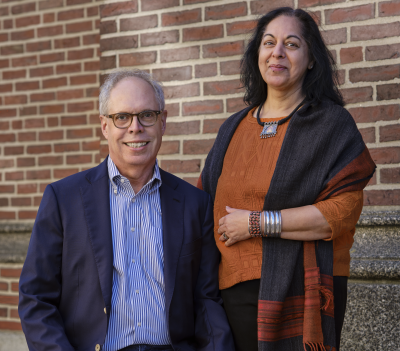
Human dignity binds us together
In 2022, the people of Cambridge continued to show their resilience. And the Foundation was behind them every step of the way, with responsive grant making and bold partnerships. For us, it was also a year to think about our future. We launched a strategic planning process that revealed our strengths and deepened our commitment to the values that drive our work. Above all else, we’re an organization that prizes human dignity—the dignity of our community, our nonprofit partners, the people we serve, and our talented staff. This belief speaks to why we aspire to be a community foundation of and for all of Cambridge.
—Geeta Pradhan and Phil Johnson
Geeta is the president and Phil is the board chair of the Cambridge Community Foundation.

